- Home
- Robert Rankin
The Mechanical Messiah and Other Marvels of the Modern Age Page 5
The Mechanical Messiah and Other Marvels of the Modern Age Read online
Page 5
It was approaching midnight as the colonel trudged up the cockeyed staircase towards his shared accommodation, Darwin riding piggyback, somewhat tiddled by champagne. Moonlight fell upon him through an out-of-kilter casement and but for the muffled rumblings and hoof-falls of horse-drawn conveyances, the occasional drunken ejaculation of a home-bound reveller and the distant thrubbing of engines as a dirigible passed through the night sky bound for the spaceport at the Crystal Palace, Mrs Marsuple’s boarding house was near to silent.
The colonel eased open the door to his room, entered, struck a lucifer, lit a candle, closed and locked the door behind him. He removed the monkey from his back and placed him tenderly into the child’s cot that served Darwin as a bed. Tousling the hairy head of the sleeping simian, for the colonel was at heart a kindly man.
Giving a tired flex to his creaking shoulders, the old soldier took off his headwear, his uniform and boots. The uniform he neatly folded and laid out upon wax paper beneath his bed. The boots he buffed on the counterpane, then stood them to attention before his uniform. In naught now but his ragged vest and long johns, Colonel Katterfelto drew back the counterpane, shook away the bedbugs, blew out the candle and settled down to sleep.
‘We know we’re in the future as we’re wearing metal beards,’ murmured the brothers Britain.
The colonel was already snoring.
Alice Lovell had slightly better theatrical diggings.
Hers were a suite of elegant rooms in Bayswater. An elderly patron of the arts, a man of means with an eye for a well-turned ankle, had established her there. But, like Cameron Bell, Alice Lovell was not a person who could be ‘bought’. And so she had made it known to her sponsor that although she appreciated his generosity in granting her rent-free occupation of these delightful diggings, this appreciation did not extend to furnishing him with sexual favours.
The elderly sponsor had mulled this over, complimented Alice upon being a fortress of moral rectitude and then given her three weeks to vacate the premises.
These three weeks were almost up and Alice Lovell fretted.
It would have to be said, however, that had the ageing admirer of a well-turned ankle actually been granted entry to the apartment after Alice moved in, he would probably have demanded that she leave immediately. Fortress of moral rectitude or otherwise notwithstanding. For the damage being wrought upon the fixtures and fittings of this Bayswater nid d’amour by the acrobatic but scarcely house-trained kiwi birds was of an order above and beyond the endurance of most but Alice.
The keeper of kiwi birds released her troublesome charges from their travelling cage and slipped into the bathroom that was hers for now, locking the door behind her.
This room was frescoed after the manner of Prince Giulio Pezzoli’s famous vestry in the church of Saint Maria in Trastevere. The style was that known as fête galante, with rose—wound arbours where romantic chevaliers in extravagant uniforms offered chocolate lovelies to the ladies of their hearts.
Here Alice ran hot water into the huge marble bathtub, scented it with crystallised lavender, stepped from her clothes and slid, deliciously naked, into the fragrant depths.
Here she sighed, but smiled a little, too.
Her first night at the Electric Alhambra had lacked not for excitement. And although poor Harry Hamilton had come to an end that was both terrible and tragic, the audience had loved her. She would enjoy a successful season there, she felt sure. Although it would probably be for the best if tomorrow she began the search for new accommodation.
But now was for now and she splashed in the scented water.
In the home where he had been born and brought up, Cameron Bell sat alone. His shuttered study had a scholarly aspect, with its countless leather—bound books, precisely catalogued and impeccably preserved, filling numerous glass-fronted cabinets of mellowed mahogany inlaid with tropical woods.
It was also a room that contained many items of rare beauty. Exquisite Chinese porcelain and Japanese lacquer work. Ancient Mayan bronzes, bright Parisian glass and ornate objects fashioned in gold by Peter Fabergé.
Here too were curiosities, queer things that to some might seem grotesque. A shrunken head, fashioned not by natives of the Jivaro tribe, but by a Londoner known as the Bermondsey Butcher, whom Cameron Bell had brought to the hangman’s rope. Similarly a necklace made of human teeth and gloves of human skin. Grim trophies these for those who would hunt the biggest game of all. And who in turn would find themselves brought low by Cameron Bell.
The most private of private detectives poured ruby port into a cut-crystal rummer that had been in his family for three generations and brought it to his lips. This night had been one of double excitement for him. In that it had led him to embark upon a most challenging case of murder most foul. Which in turn had allowed him to meet and kiss the hand of the woman who filled his dreams and offered the prospect of enchantment to his waking hours. A promise, perhaps, but at present no more than that.
Cameron Bell adjusted his pince-nez, took up a magnifying glass and examined the object that lay before him upon the tooled-leather top of his writing desk.
The signet ring of Mr Harry Hamilton. Deceased.
The curious sigil engraved upon it offered up nothing but mystery. Masonic? Not as such, the detective supposed. The symbol of some secret order? That was a possibility. Secret societies and magical orders were all the rage in London at the present. Cameron Bell had knowledge of Aleister Crowley. The two had been at Trinity College together. Crowley was presently making a name for himself as a mystic, having recently wrested leadership of the Hermetic Order of the Golden Dawn from Samuel Liddell MacGregor Mathers.
Taking tea with Aleister Crowley was always an enlivening experience, although not one that Cameron relished. But upon this occasion it might prove invaluable as Crowley’s knowledge of matters metaphysical far exceeded that of Cameron Bell.
The private detective turned the ring upon the palm of his hand. It was weighty for its size. Then was it gold? Cameron Bell took out those items from his desk which he required to test the authenticity of gold and went about the business. The ring was not of gold. Cameron Bell performed further tests and further tests, too. The ring was of no metal known at all to him.
‘A mystery indeed,’ he said. Then smiled a bit and yawned.
Then, finishing his port, went off to bed.
And so the night moved on towards the morning.
Colonel Katterfelto snored rhythmically, his sleeping head filled with curious alliterative visions: magic, mayhem, mechanical marvels, messianic madness and the Music Hall.
Darwin the monkey dreamed oft-times of bananas. Sometimes cooked but mostly on trees which grew in his own plantation. His dreams were briefly interrupted by a line from a Music Hall song: ‘I tend to find fish disappointing, they always tail off at the end.’ Sung in perfect harmony by the sleeping brothers Britain.
Alice Lovell, pretty-pink and pampered by her bath, slept beneath a silken sheet and dreamed of men who were tall and dark and handsome.
Cameron Bell cuddled up to his teddy and dreamed of Alice Lovell. Tonight, as upon many previous nights, he dreamed of their marriage. Tonight it was being held at Westminster Abbey, the wedding officiated by the Archbishop of Canterbury. Alice looked radiant in a dress that was a facsimile of the one worn by Queen Victoria at her marriage to Albert. So far these dreams of he and Alice had never reached beyond the actual ceremony. Never to the actual wedding night. And tonight would be no exception, with the wedding turning into chaos when the archbishop flung aside his ecclesiastical robes to reveal himself to be a giant kiwi bird.
Others all over London slept, curled against their loved ones, or alone.
But there were those who did not sleep, or would not sleep. Those who prowled the gaslit alleyways, moving from one dark space to another. Stealthily and quiet as you please.
One lean figure crossed a cobbled yard, dressed as would a gentleman with high top hat and trailin
g cloak and black malacca cane. His gloves were of the finest kid and at times his gloved fingers rose to adjust the black silk mask that offered disguise to his face.
There was a strange vitality evident to this figure. Something almost electric. A violet light appeared at times to flicker all about him. As an aura.
There were psychics in London who claimed to be able to view the auras of men. There were also psychics who claimed to possess sanctified goggles through which fee-paying clients might perchance view all manner of marvellous sights.
But had a genuine psychic, one possessed of powers of inner vision, been present upon this night and in this cobbled yard to view the gaunt figure in the high top hat, this psychic would surely have grown pale and turned away. Turned away and run for all of their life.
For this unhappy psychic would have discerned an aura of pure and palpable evil cloaking the being in the mask.
For this being, whose identity was known to but a very few, bore the distinction of being the most evil creature who had ever walked the Earth.
He never slept, but dream he did, of terrible, terrible things.
8
o what thou wilt shall be the whole of the law.’ The fussy nasal voice that intoned this Rabelaisian dictum belonged to Aleister Crowley. ‘I have been expecting you,’ he continued.
Cameron Bell knew Mr Crowley well enough. Knew of his bravado and the high opinion he had of himself. Crowley’s calling card announced him as To Mega Therion, the Great Beast of Revelation, whose number is six hundred and sixty-six.
Crowley was at present a man of wealth, a traveller, a noted mountain climber, a published poet and a magician. In his personal opinion, the greatest magician that ever there was.
Physically there was nothing special that signalled him as different from the rest. He was tall and well muscled, given to premature balding, expensively dressed and carried himself as would an English gentleman.
Cameron Bell put his hand out for a shake. Mr Crowley raised a blessing finger. ‘Hurry inside,’ he said to his old university friend. ‘Problems with the landlord, at the present.’
Cameron Bell made his entrance, smiling as he did so. Crowley always caused him a chuckle or two. Here was a man of independent wealth who would skip off a horse tram without paying his fare, if the opportunity arose. Crowley was of that order of being who ‘offer the world their genius, expecting only in return that the world should cover their expenses.
The door slammed shut upon the outer world and Cameron Bell stood in the lair of the Beast. It was all rather cosy and nice. Crowley had clearly rented these rooms in a furnished condition. The homely furniture with its colourful coverings, the chintzy curtains all floral and sweet, were hardly what he would have chosen. They did not cultivate a sufficient air of drama and mystery.
‘What charming antimacassars,’ observed Cameron Bell, gesturing towards the embroidered items which graced the chairs and settees.
‘Breakfast?’ asked the Beast of Revelation.
‘Not for me, thank you.’ Cameron Bell removed his brown bowler hat and hung it on a peg amongst a most curious collection of headwear. Things of a magical nature, he supposed. ‘I have already eaten,’ he continued. ‘At the London Hospital. I had to drop off a certain something to my good friend Sir Frederick Treves. Before it, how shall I put this, went off’
Cameron Bell was of course alluding to the hurty-finger of Harry Hamilton, but Aleister Crowley did not know this, and Cameron Bell did not intend to enlighten him.
‘So,’ said Crowley. ‘I perceive that you are having no luck with your latest case.
Cameron Bell sat down upon a settee. ‘Your perception does not enter into it,’ said he. ‘I observed this morning’s Times newspaper upon your side table there, its pages thoroughly thumbed. I have already read it myself It offers a vivid account of the tragic event that took place last night at the Electric Alhambra. It names Commander Case as investigating officer. You are aware of my relationship with Commander Case. But then you know well enough that I am always on a case.
Aleister Crowley smiled. ‘I was expecting you,’ he said. ‘I perceived that.’
‘I glanced up at your window as I crossed the street,’ said Cameron Bell. ‘I saw you skulking behind the net curtains. I note the pile of unpaid bills upon the side table next to the newspaper. You are expecting the imminent arrival of the bailiffs, I perceive.’
‘Basic stuff,’ said Crowley. ‘But you are here and you are not a man who makes too many social visits. If you are here regarding that twenty guineas I borrowed from you back at Trinity, then—’
‘Not that,’ said Cameron Bell.
‘Then as I thought, you seek to learn something from me. You suspect, and correctly, I do have to say, that I know something, many somethings in fact, that you do not.’
Cameron Bell nodded his naked head. ‘You are correct,’ said he.
Aleister Crowley flung himself into an armchair opposite Cameron Bell and fixed him with a stare. It was a practised stare, Crowley’s eyes focusing upon a point somewhere to the rear of Cameron’s head. On first encountering the Beast, folk were generally most perturbed by this stare, as it seemed as if the mystic was looking right through them. Cameron Bell would have none of it, though.
‘Let us take a morning pipe,’ said Aleister Crowley. Producing from the pocket of his quilted red velvet smoking jacket (he wore also a matching smoking cap to cover his balding pate) an opium pipe and a rather large bag of opium.
‘Somewhat early in the day for me,’ said Cameron Bell. ‘But do not let me stop you.
‘No one stops me.’ Aleister Crowley took to the filling of his pipe. ‘And it is not so early for me. I have not slept for three nights. I am engaged in a complex magical ritual.’
A series of thumps occurred at this time, coming from an adjoining room. The Inner Sanctum perhaps, where magical rituals were performed? Or the bedchamber?
Muffled cries were added to the thumping.
Mr Crowley excused himself from the presence of Mr Bell and made off in the direction of these sounds.
The detective then heard a loud slap and the voice of Crowley calling out for silence. The mystic returned; the conversation continued.
‘You are not a believer in magic, are you?’ asked Aleister Crowley.
Cameron Bell gave shakings of his head. ‘I am more a man of science, I suppose.’
‘The two are interlinked in more ways than you might imagine.’ Aleister Crowley lit his pipe, drew in lungfuls of smoke.
‘I would not scorn any man’s belief,’ said the private detective. ‘But I deal in fact, and not belief’
Aleister Crowley laughed a wicked laugh. ‘Folderol,’ said he. ‘You are a man of inspiration. Of intuition. These things cannot be quantified or brought to scientific measurement. These things are aspects of magic.’
Cameron Bell made a thoughtful face. He wasn’t sure about that.
‘Once you have experienced the power of real magic—’ the mystic focused his eyes once more to the rear of Cameron’s head ‘—there is no going back. And there is no question as to its reality.’
‘The young lady you have bound and gagged in your bedroom is what, then?’ Cameron asked. ‘A sorcerer’s apprentice? An acolyte?’
‘No, she’s a whore,’ replied Crowley. ‘And I perceive that you are already out of your depth in this conversation and so seek to make light of my words and change the subject.’
Cameron Bell nodded thoughtfully. There was some truth to that.
‘And magic is a science,’ continued the Beast. ‘It has to be performed with precise exactitude. It is formulaic, it responds to the laws of cause and effect. A mistake is not rewarded by failure, it is rewarded by a disastrous consequence.’ Crowley drew deeply once more upon the stem of his opium pipe. ‘Trust me,’ he said. ‘I know these things. I am a magician.’
‘And one of increasing reputation.’ Cameron Bell fanned away at the opium smoke Crowley was po
intedly blowing in his direction. ‘I hear that the Hermetic Order of the Golden Dawn is now under your leadership.’
‘Buffoons to a man of them,’ quoth Mr Crowley. ‘That second-rate rhymester Yeats.[5] That clown Mathers. Do you know what he once told me after nothing but a single pint of laudanum? “The Sun is not a star,” he said. “It is a lens that focuses the brilliance of God onto the Earth.” Priceless, don’t you think?’
‘Priceless,’ the private detective agreed. ‘Might I open a window?’ he continued.
‘No,’ said Crowley. ‘They are all nailed shut.’
‘A glass of water, then?’
‘I have absinthe.’ The mystic smiled as he spoke.
Cameron Bell shook his head politely. ‘Again somewhat early for me,’ said he.
‘So,’ said Aleister Crowley. Leaning back in his chair and making all-inclusive gestures with his pipe-free hand. ‘Let us continue with the discourse. Let me explain to you exactly what magic is and what exactly it does. And when I have explained these matters to you, you will place five guineas in my hand, kneel before me and address me as Master.’
Cameron Bell considered this to be unlikely at best.
‘I do seek enlightenment,’ he said, ‘but only in a small matter. One perhaps beneath your dignity. I think I should leave you to your Great Work.’
Cameron Bell rose slowly.
Aleister Crowley said, ‘Not one bit of it.’
Cameron Bell reseated himself.
‘You carry an item upon your person that baffles you, said Crowley. ‘I perceive.’
The private detective was prepared to concede that one to Crowley. Although it might have been nothing more than a lucky guess. Either way he wanted an answer and it would be better to get it now, if it existed, rather than attempt it a little later, when Crowley would either be stupefied by opium or fast asleep in his chair.
‘Take it out, then,’ said Crowley. ‘It is in your right-hand waistcoat pocket.’

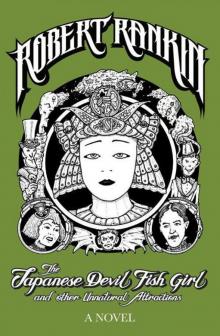 The Japanese Devil Fish Girl and Other Unnatural Attractions
The Japanese Devil Fish Girl and Other Unnatural Attractions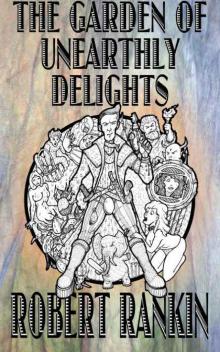 The Garden of Unearthly Delights
The Garden of Unearthly Delights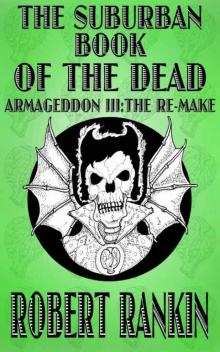 The Suburban Book of the Dead: Armageddon III: The Remake
The Suburban Book of the Dead: Armageddon III: The Remake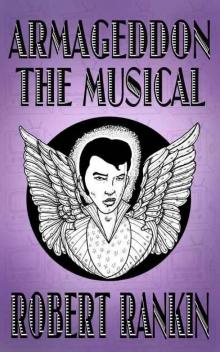 Armageddon_The Musical (Armageddon Trilogy Book 1)
Armageddon_The Musical (Armageddon Trilogy Book 1)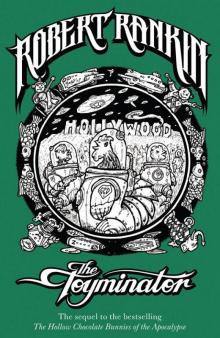 The Toyminator
The Toyminator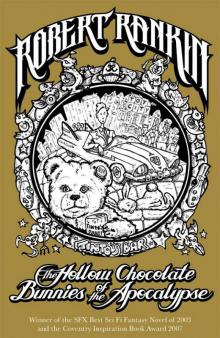 The Hollow Chocolate Bunnies of the Apocalypse
The Hollow Chocolate Bunnies of the Apocalypse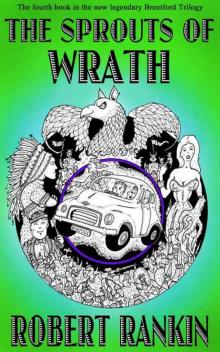 The Sprouts of Wrath
The Sprouts of Wrath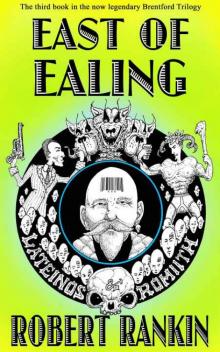 East of Ealing
East of Ealing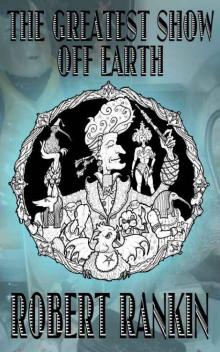 The Greatest Show Off Earth
The Greatest Show Off Earth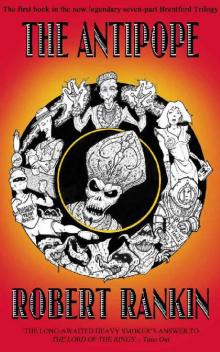 The Antipope
The Antipope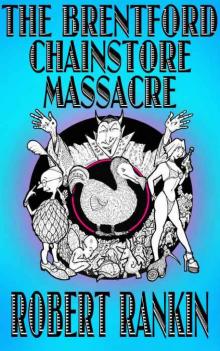 The Brentford Chainstore Massacre
The Brentford Chainstore Massacre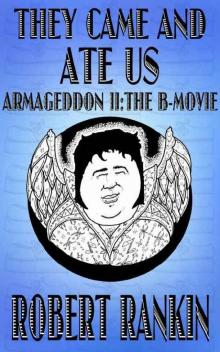 They Came and Ate Us_The B-Movie (Armageddon Trilogy 2)
They Came and Ate Us_The B-Movie (Armageddon Trilogy 2)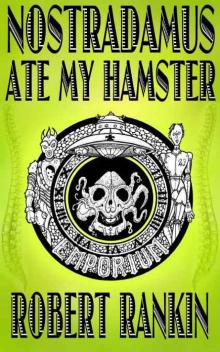 Nostradamus Ate My Hamster
Nostradamus Ate My Hamster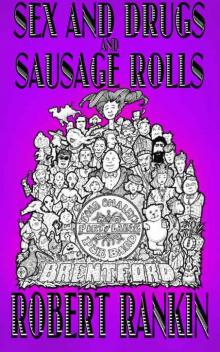 Sex and Drugs and Sausage Rolls
Sex and Drugs and Sausage Rolls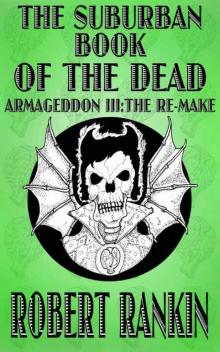 The Suburban Book of the Dead_The Remake (Armageddon Trilogy 3)
The Suburban Book of the Dead_The Remake (Armageddon Trilogy 3)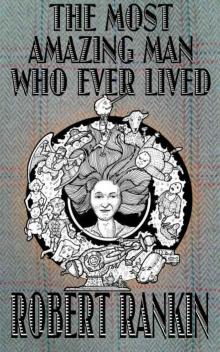 The Most Amazing Man Who Ever Lived
The Most Amazing Man Who Ever Lived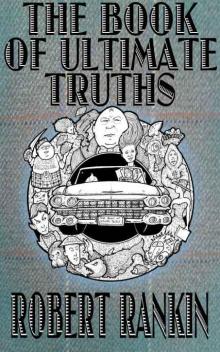 The Book of Ultimate Truths
The Book of Ultimate Truths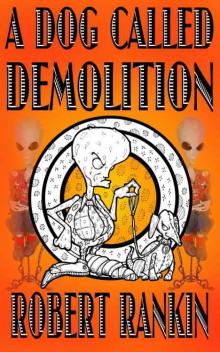 A Dog Called Demolition
A Dog Called Demolition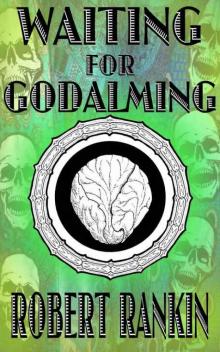 Waiting for Godalming
Waiting for Godalming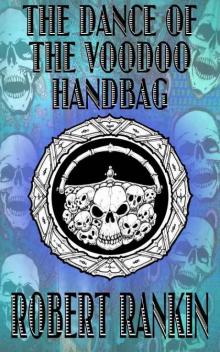 The Dance of the Voodoo Handbag
The Dance of the Voodoo Handbag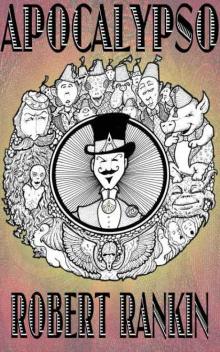 Apocalypso
Apocalypso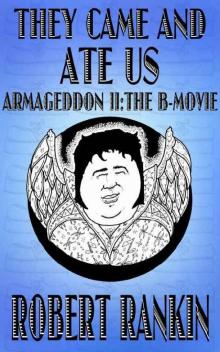 They Came and Ate Us: Armageddon II: The B-Movie
They Came and Ate Us: Armageddon II: The B-Movie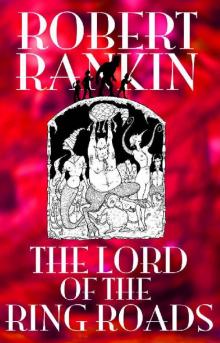 The Lord of the Ring Roads
The Lord of the Ring Roads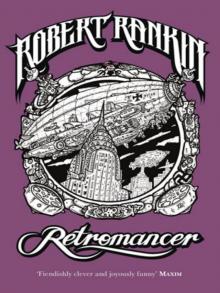 Retromancer
Retromancer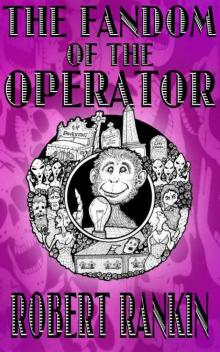 The Fandom of the Operator
The Fandom of the Operator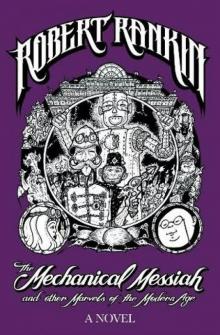 The Mechanical Messiah and Other Marvels of the Modern Age
The Mechanical Messiah and Other Marvels of the Modern Age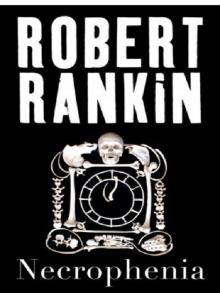 Necrophenia
Necrophenia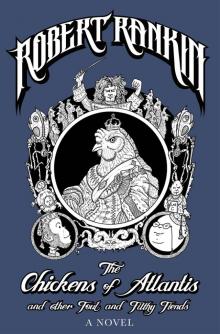 The Chickens of Atlantis and Other Foul and Filthy Fiends
The Chickens of Atlantis and Other Foul and Filthy Fiends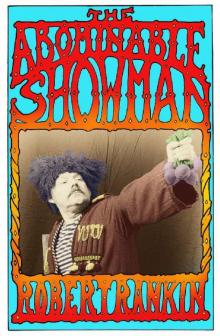 The Abominable Showman
The Abominable Showman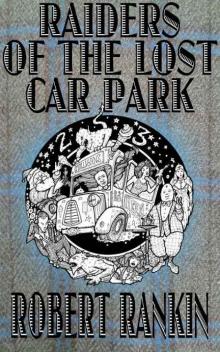 Raiders of the Lost Carpark
Raiders of the Lost Carpark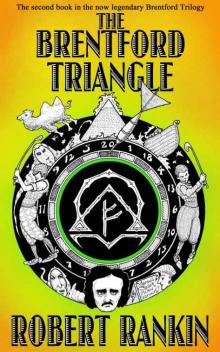 The Brentford Triangle
The Brentford Triangle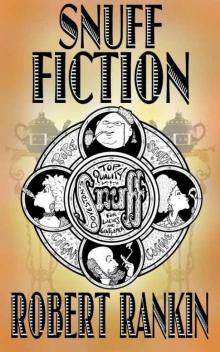 Snuff Fiction
Snuff Fiction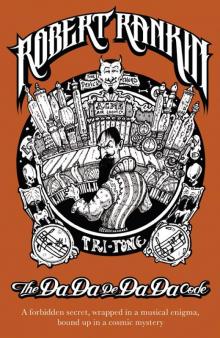 The Da-Da-De-Da-Da Code
The Da-Da-De-Da-Da Code Web Site Story
Web Site Story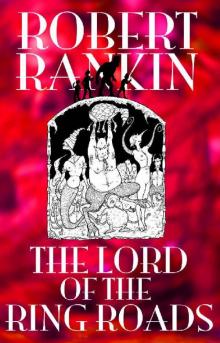 The Lord of the Ring Roads (The Final Brentford Trilogy Book 1)
The Lord of the Ring Roads (The Final Brentford Trilogy Book 1)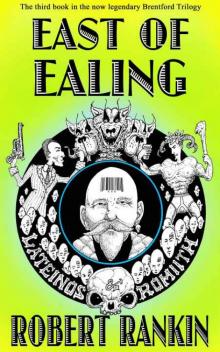 East of Ealing (The Brentford Trilogy Book 3)
East of Ealing (The Brentford Trilogy Book 3)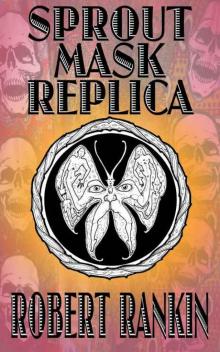 Sprout Mask Replica (Completely Barking Mad Trilogy Book 1)
Sprout Mask Replica (Completely Barking Mad Trilogy Book 1)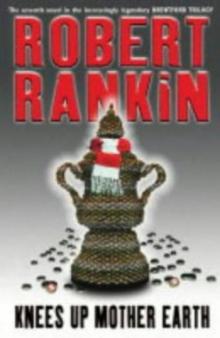 Knees Up Mother Earth bs-7
Knees Up Mother Earth bs-7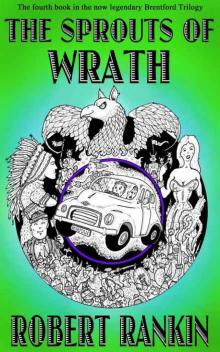 The Sprouts of Wrath (The Brentford Trilogy Book 4)
The Sprouts of Wrath (The Brentford Trilogy Book 4)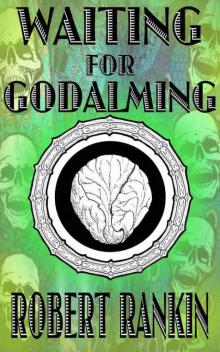 Waiting for Godalming (Completely Barking Mad Trilogy Book 3)
Waiting for Godalming (Completely Barking Mad Trilogy Book 3)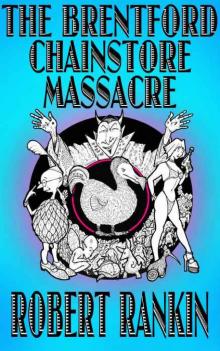 The Brentford Chainstore Massacre (The Brentford Trilogy Book 5)
The Brentford Chainstore Massacre (The Brentford Trilogy Book 5)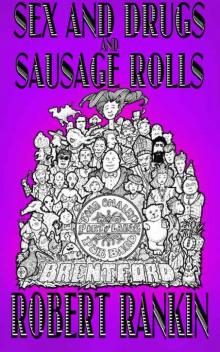 Sex and Drugs and Sausage Rolls (The Brentford Trilogy Book 6)
Sex and Drugs and Sausage Rolls (The Brentford Trilogy Book 6)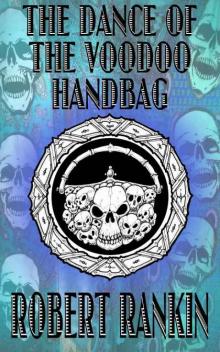 The Dance of the Voodoo Handbag (Completely Barking Mad Trilogy Book 2)
The Dance of the Voodoo Handbag (Completely Barking Mad Trilogy Book 2)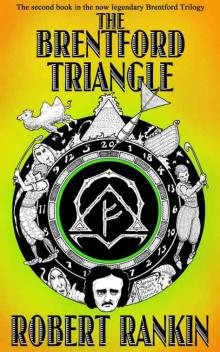 The Brentford Triangle (The Brentford Trilogy Book 2)
The Brentford Triangle (The Brentford Trilogy Book 2)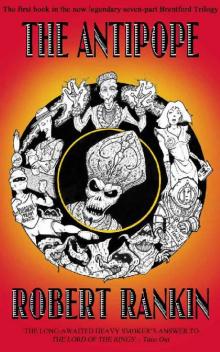 The Antipope (The Brentford Trilogy Book 1)
The Antipope (The Brentford Trilogy Book 1)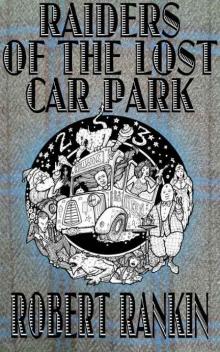 Raiders of the Lost Car Park (The Cornelius Murphy Trilogy Book 2)
Raiders of the Lost Car Park (The Cornelius Murphy Trilogy Book 2)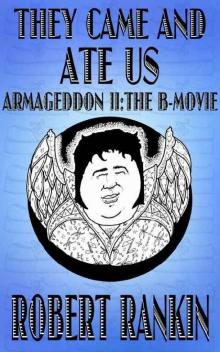 They Came and Ate Us - Armageddon II_The B-Movie (Armageddon Trilogy Book 2)
They Came and Ate Us - Armageddon II_The B-Movie (Armageddon Trilogy Book 2)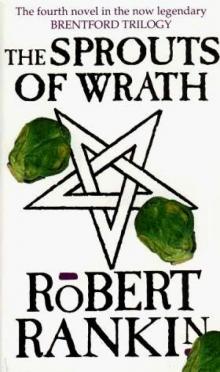 The Sprouts of Wrath bs-4
The Sprouts of Wrath bs-4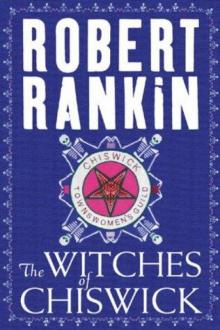 The Witches of Chiswick
The Witches of Chiswick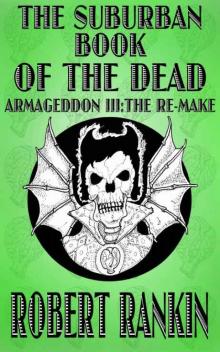 The Suburban Book of the Dead - Armageddon III: The Remake (Armageddon Trilogy 3)
The Suburban Book of the Dead - Armageddon III: The Remake (Armageddon Trilogy 3)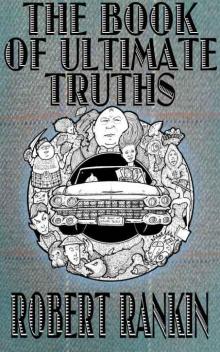 The Book of Ultimate Truths (The Cornelius Murphy Trilogy 1)
The Book of Ultimate Truths (The Cornelius Murphy Trilogy 1)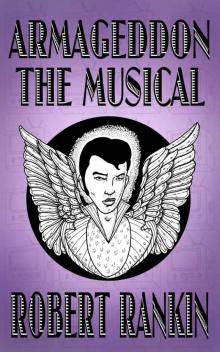 Armageddon: The Musical (Armageddon Trilogy)
Armageddon: The Musical (Armageddon Trilogy)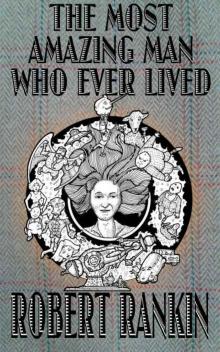 The Most Amazing Man Who Ever Lived (The Cornelius Murphy Trilogy Book 3)
The Most Amazing Man Who Ever Lived (The Cornelius Murphy Trilogy Book 3)